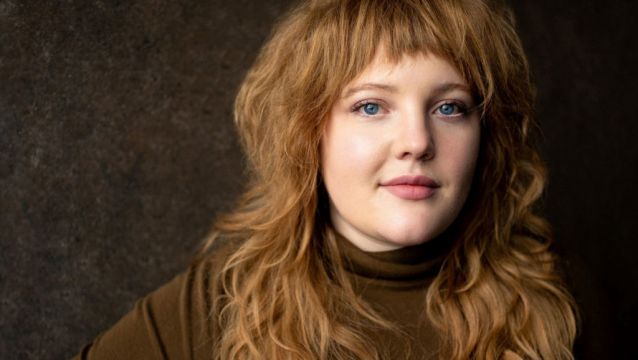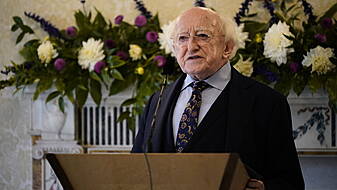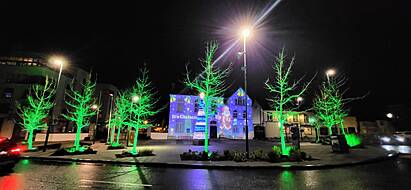There’s a buzz around Canadian screenwriter and comedian Monica Heisey’s debut novel Really Good, Actually – a funny and painfully relatable tale about a young divorcee’s experiences, as she tries to navigate life after a short-lived marriage.
It’s been applauded by acclaimed writers Dolly Alderton, Marian Keyes and Rob Delaney, the American actor, comedian and co-creator and star of hit sitcom Catastrophe.
In the novel, the marriage of Toronto-based couple Maggie and Jon implodes shortly after they wed in their late 20s, after being together for a long time. The story follows the aftermath between Maggie’s 29th and 30th birthdays, in equally funny, absurd and heart-rending slices.
I LOVED #ReallyGoodActually with all of my heart ❤️❤️❤️ https://t.co/AHpFkCS7JR
— Marian Keyes (@MarianKeyes) December 21, 2022
Advertisement
Heisey, 34, also married in her late 20s, and divorced after two years aged 28. But that’s just about where the similarity ends, she explains, and she doesn’t want to dwell on her own marriage break-up.
“The starting point of the novel – a young marriage breaking down after many years together – aligns pretty closely with my own life,” she agrees. “I wanted to start Maggie somewhere familiar to me and then take the novel to all these unfamiliar places.”
Heisey – who has already enjoyed success with TV screenwriting, having written for Schitt’s Creek, and was involved in the BBC adaptation of Dolly Alderton’s Everything I Know About Love – now lives in London.
She fell in love with the city after doing an early modern literature MA at King’s College in 2010 – and remained for four years, where she began her writing and comedy career doing improv gigs and stand-up routines.“I just fell in love with London. The cultural scene here is amazing. I saw the Edinburgh Festival for the first time, which was mind-boggling. With the creative community, I just felt I had really stumbled into something incredible and wanted to stay,” she reflects.
When she returned to Toronto because of dwindling visa options, Heisey wrote a spoof advice column which was turned into a book, I Can’t Believe It’s Not Better, and subsequently joined a writer’s room for a comedy sketch show with a group of women, which led to her first TV writing job.
She also got married, divorced quickly, and returned to the UK in 2017. Like her fictional character, she too dabbled in dating apps post-divorce.
“I was interested for Maggie to think about people who’d got into these long-term relationships at college and come out being single again when the entire dating landscape has changed, not only with apps like Tinder and Hinge. It’s like the Wild West.”
We're super excited to welcome MONICA HEISEY to Mr B's to discuss her debut novel 'Really Good, Actually' on 25th January.
Full details & tickets here: https://t.co/AtLRg27TRZ pic.twitter.com/CpJof4Eo73Advertisement— Mr B's Emporium (@mrbsemporium) December 19, 2022
Did she have any dating disasters when she found herself single again?
“I’m not a huge user of the apps,” she says, laughing. “I don’t really trust them. I’m much more prone to dating friends, but most single woman under 40 can tell you a couple of disasters dating on the apps, so I gave them a wide berth.”
She agrees there is Millennial disillusionment with life, which she draws on in Maggie’s pessimism.
“She’s expressing things a lot of people my age feel, the sense that we are the first generation who will be worse off than our parents, likely for our entire lives. Home ownership or even renting without five flatmates into your 30s and 40s is feeling very out of reach. These things are genuinely disillusioning.”
She says Maggie is much less like herself than she expected when she first started out. The book focuses on the character’s self discovery, not on whether she might reunite with her husband, and the mask she wears in the face of adversity, amid stages of grief, unstable friendships and questions of self-esteem.
“The main similarity is that Maggie and I look very similar. The novel is a portrait of a young contemporary woman in crisis and I didn’t think I could write that story without delving into body image and beauty standards.
“I thought it would be the fastest way to emotional honesty, accuracy and authenticity to share a physical profile with Maggie.”
She has mixed feelings about the body positivity movement, describing how online culture affects behaviour in the novel.
“It’s very complicated for a lot of people trying to figure out what their relationship is with their body, when they’ve been bombarded with messages about it forever. Sometimes we just replace the initial message of, ‘You should hate your body’ with the message that ‘You have to love your body’ – and both are quite a lot of pressure,” she says.
“There’s a growing movement towards body neutrality that I find very interesting. That maybe takes of bit of that pressure off.”
Social media can exacerbate body image issues, she agrees.
“I don’t envy people growing up who have been on social media their entire lives. As a teenager, you already feel that everyone’s looking at you – and with social media that’s kind of true, which is a nightmare.”
However, balancing humour and heartbreak was the most important element in crafting the novel, she continues.
“Heartbreak is this huge experience that feels so life-ending, and then the irony is that most people by the time they are in their late 20s or early 30s have already survived heartbreak once or twice, and it still hits just as hard every time. This genuinely quite devastating experience has ridiculousness baked into it.
“I’m trying quite hard to make readers laugh.,” she adds. “I do think it was important to show not just the funny, chaotic, self-destructive side of this break-up but to have a glimmer of hope at the end, because as much as the crisis can be an interesting part of the story, ultimately the story always carries on, hopefully to a better and more balanced place where you’ve learned from your experience.”
She’s currently working on a romcom TV show for Sky, which she can’t discuss, and her novel has been optioned for screen adaptation. She suggests Nicola Coughlan (from Derry Girls and Bridgerton) would be perfectly cast as Maggie. She’s also writing another contemporary novel, which she hopes will centre on a group rather than on one person’s perspective.
As for her own romantic life, Heisey has been in a relationship for four years but remains tight-lipped about the prospect of marrying again.
“People start asking that question before the ink is dry on the divorce papers,” she says, chuckling. “I haven’t got anything against marriage. The first time I did it, I thought it was a romantic idea. I think it’s still quite a romantic idea to pledge to try very hard to be with someone for as long as you’re alive.”
Really Good, Actually by Monica Heisey is published by Fourth Estate on January 17th.







